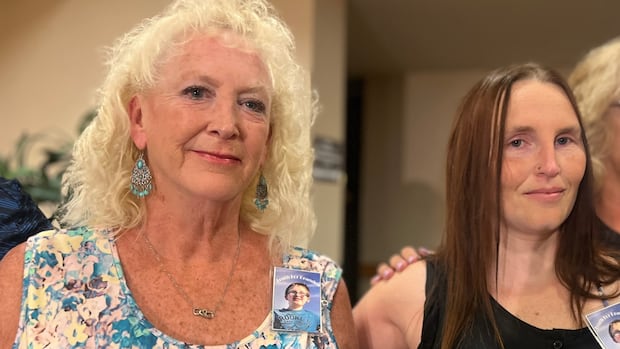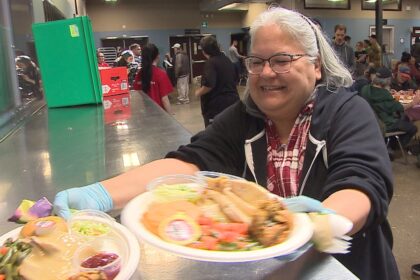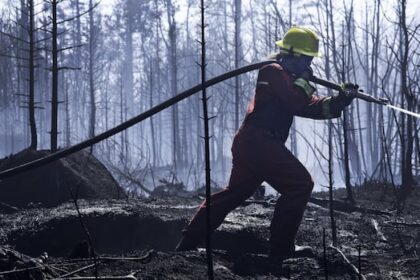SaskatoonA coroner’s jury has delivered its findings after three days of testimony into the death of 14-year-old Brandon Schafer-Kovacs. The teen died in the care of the Ministry of Social Services while living in a Saskatoon group home. Brandon Schafer-Kovacs died of sepsis in 2022 while a resident in a Saskatoon group homeAishwarya Dudha · CBC News · Posted: Aug 27, 2025 8:57 PM EDT | Last Updated: 5 hours agoBrandon Schafter-Kovacs’s family members, including his grandmother Cathie Pocha, left, and his mother Chantelle Schafter, say they’re committed to being a gentle but powerful voice for change. (Aishwarya Dudha/CBC)A coroner’s jury has delivered its findings after three days of testimony into the death of 14-year-old Brandon Schafer-Kovacs. The teen died in the care of the Ministry of Social Services while living in a Saskatoon group home. The six-member jury concluded Schafer-Kovacs died from sepsis at Jim Pattison’s Children’s Hospital on Nov. 28, 2022. Sepsis is a life-threatening condition that occurs when the body has an extreme reaction to infection.”I just want to say that we miss him dearly, we loved him dearly — and his life mattered,” Cathie Pocha, Schafer-Kovacs’s grandmother, told reporters following the conclusion of the coroner’s inquest on Wednesday.The family hopes the recommendations will prevent other families from experiencing similar heartbreak. “It’s left the family feeling lots of sorrow and grief, that they’re still processing,” said Christie Libner, the family’s lawyer.Brandon Schafer-Kovacs’s family members wore a photo of him on their shirts during the inquest, with the words, ‘Truth for Brandon.’ (Submitted by Chantelle Schafer)Schafer-Kovacs was living at Eagle’s Nest Youth Ranch in Saskatoon before he died, and the jury heard over three days of testimony that while the teen was sick and there was a documented request that he go to the hospital, he wasn’t taken to hospital for several days.By the time he was taken to the Jim Pattison Children’s Hospital, he was already critically ill. Schafer-Kovacs died three days later in intensive care.The jury made recommendations directed at the youth home that included mandatory training that’s documented and signed by the supervisor and manager, sensitivity training and clear separation of reporting between client activity logs and house operation logs. The jury also recommended that group home staff document all interactions and communications with outside persons, including Ministry staff.In addition, Coroner Blaine Beaven made a recommendation directed to the Ministry of Social Services that it consider amending the residential services manual, and forward the jury’s recommendations to all group homes that it contracts with.WATCH | Jury makes recommendations after inquest into death of teen: Jury makes recommendations after inquest into death of teen who died in care of Sask. Social ServicesA six-member jury found Brandon Schafer-Kovacs, who was living at a Saskatoon youth care home, died from sepsis in November 2022. His family hopes for quick implementation of the recommendations to safeguard children under the government’s care.A coroner’s inquest cannot assign blame, but its goal is to prevent similar deaths in the future. Twelve witnesses testified, including Schafer-Kovacs’s mother, staff from the youth care home, doctors who treated him at the hospital and officials from the Ministry of Social Services. Among the final witnesses on Wednesday was David Smith, executive director of community services with the Ministry of Social Services. He said a quality assurance review after Schafer-Kovacs’s death has already led to amendments to the Ministry’s policies. However, Erin Gagne, director of community response services with the Ministry, testified the amendments are still in draft form, nearly three years later. She said amendments to the residential services manual — including requirements for medical supplies, documentation of illness and staff training — have not yet been implemented across the province.”Each group does their own policies as long as they fall within the guidelines of the ministry,” she said.Gagne said the Ministry expects that group homes comply with training requirements but officials do not go out and check if all care homes are fully compliant, aside from yearly audits or if a concern is raised.ABOUT THE AUTHORAishwarya Dudha is a reporter for CBC Saskatchewan based in Saskatoon. She specializes in immigration, justice and cultural issues and elevating voices of vulnerable people. She has previously worked for CBC News Network and Global News. You can email her at aishwarya.dudha@cbc.ca
Jury calls for better training, oversight after inquest into death of teen who died in Sask. government care











